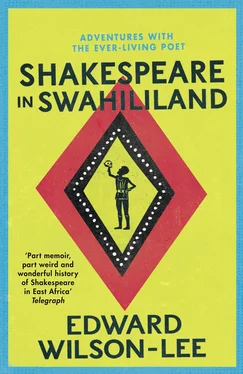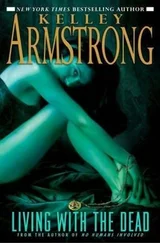The story reaches a climax, if not quite an end, in 1989, after which Shakespeare’s prominence through most of East Africa abruptly evaporated, bringing this bizarre sequence of events to an even more mysterious close. I remember very clearly sitting that year on the floor of our kitchen in Nairobi, perplexed by my mother’s joy as the BBC World Service gave daily bulletins on the collapse of the Soviet Union. I’m not sure I fully understand even now the exhilaration of this historical moment for many who lived through it; it is very difficult to inhabit the passions of the past, even though (as in this book) we cannot kick the habit of trying.
I am certain, though, that I did not understand it then. It seemed not to fit in with the house surrounded by woodland at the edge of Nairobi, with its makeshift cricket pitch between the washing lines, besieged by monkeys who would steal fruit from the kitchen table. That was a world of animals great and small, eating and being eaten and trying to stay clear of unruly children’s traps. It did not seem to fit in with the life of the city either, where people queued endlessly on broken pavement to watch films like Moonwalker and Coming to America , which the main cinema played continuously and exclusively in that year and the next. But even if I had understood the Cold War and what its end meant to those who had lived through it, it would not have explained to me why, during the devastating withdrawal of billions of dollars of aid money meant to keep African countries from defecting to Soviet allegiance, the President of Kenya spent part of his summer defending the greatness of Shakespeare as a writer. It would not have made any sense of the fact that a new English-speaking country would appear on the upper reaches of the Nile in part through a young boy soldier’s love for Shakespeare, and nor would it have solved the dozen other literary mysteries that I later came across during my travels through Africa and through the archives. For that I would have to start long before the Cold War, and to understand something not just of the high politics and the many societies that make up Swahililand, but also of how beauty works in the world, how, in the words of Shakespeare’s Joan of Arc,
Glory is like a circle in the water,
Which never ceaseth to enlarge itself
Till by broad spreading, it disperse to naught.
1 Henry VI (I.ii.133–5)
For this, I began by looking at first contacts between the British and East Africa, and the strange story of how Shakespeare became an indispensable bit of safari kit in the nineteenth century.
Конец ознакомительного фрагмента.
Текст предоставлен ООО «ЛитРес».
Прочитайте эту книгу целиком, купив полную легальную версию на ЛитРес.
Безопасно оплатить книгу можно банковской картой Visa, MasterCard, Maestro, со счета мобильного телефона, с платежного терминала, в салоне МТС или Связной, через PayPal, WebMoney, Яндекс.Деньги, QIWI Кошелек, бонусными картами или другим удобным Вам способом.












